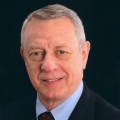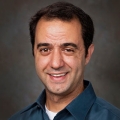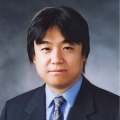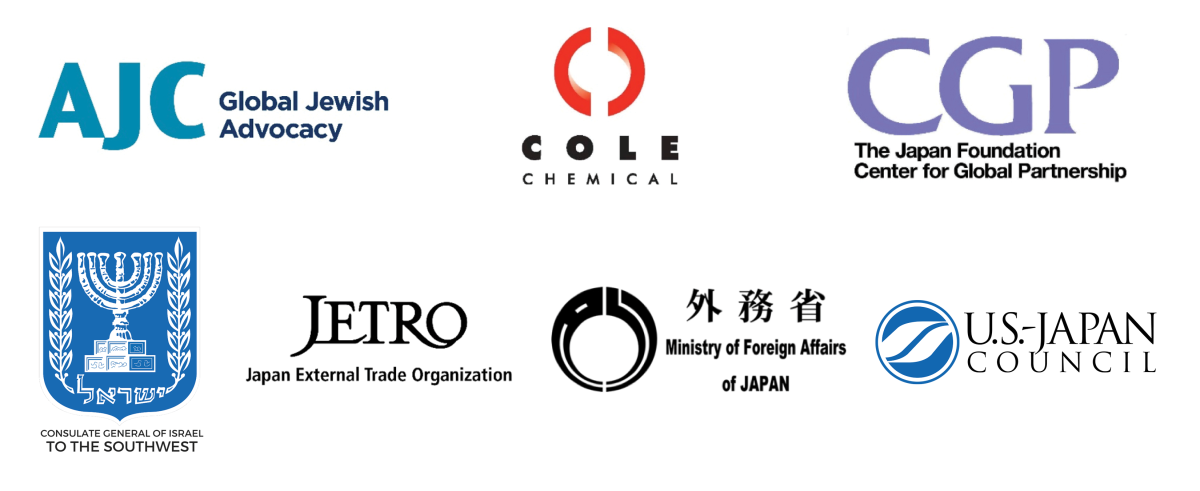Trilateral Japan, U.S., and Israel Advancements in Artificial Intelligence for the Aging and Healthcare: A Dialogue with Industry and Academic Experts
VIEW EVENT DETAILSIn collaboration with AJC, Cole Chemical, the Consulate General of Israel, the Japan Foundation Center for Global Partnership (CGP), the Japan External Trade Organization (JETRO), the Ministry of Foreign Affairs of Japan, and the U.S.-Japan Council

PARO Therapeutic Robots, Courtesy of Takanori Shibata.
Incredible changes underway in the medtech industry will shape the future of healthcare and aging populations. As Artificial Intelligence (A.I.) continues to unlock new possibilities for safety and efficiency, what societal impacts can we expect? What problems may arise, and what solutions should we begin to develop?
Join us for a panel discussion on the pioneer nations in medtech — Japan, the United States, and Israel. Our expert speakers will address areas of trilateral cooperation, as well as major innovations on the horizon.
Attendees will also get to meet PARO, an interactive robot developed for patients and seniors by National Institute of Advanced Industrial Science and Technology (AIST).
Schedule
Monday, February 25, 2019
6 p.m. | Reception
6:45 p.m. | Program
About the Speakers

Douglas Dotan is a passionate advocate for adoption/change management with a unique combination of hands-on experience in harnessing and applying today’s technology for the development of safety and quality management tools resulting in proactive, real-time, preventive action, quality assessment, risk management, safety analysis, and human factors evaluation, in aviation, and healthcare, enhancing safety effectiveness and efficiencies. Mr. Dotan has held increasingly responsible positions as an operational pilot in the Israel Air Force, ranging from Intelligence Officer and Patient Safety Officer to Lead Aircraft Accident Investigator. Currently he serves as the President of CRG Medical, Inc., a Patient Safety Information Technology Company. In that role he is responsible for developing the Pegwin Insights software applications that use Machine Learning and medical Artificial Intelligence algorithms to meet the needs of protecting patients from preventable harm. Preventable harm in hospitals claim the lives of more than a quarter of a million patients every year in the United States. The Pegwin R&D Data Scientists are in Jerusalem, Israel. He is a member of the American Society of Healthcare Executives, a former chairman of the American Society for Quality (ASQ) Health Care Division, and a charter member of the Downtown Rotary Club in Houston. Mr. Dotan holds a bachelor’s degree in Geoscience from Bar-Ilan University and a master’s in Behavioral Science: Industrial and Organizational Psychology from the University of Houston Clear-Lake in Texas. He is a graduate of the IAF Flying Academy, Command and Staff College Course, and is a certified quality improvement associate. He has completed flight safety management training in the USC School of Systems Safety and Engineering for USAF Flight Safety Officers.

Dr. Bobak Mortazavi is an Assistant Professor in Computer Science & Engineering at Texas A&M University, and a member of the Center for Remote Health Technologies & Systems. Prior to joining Texas A&M, Dr. Mortazavi was a postdoctoral associate at the Center for Outcomes Research and Evaluation (CORE) and in the Department of Statistics. He worked as a graduate student (and earned his Ph.D.) in Computer Science at the University of California Los Angeles (UCLA) Wireless Health Institute (2014). He earned a B.A. in Applied Mathematics and a B.S. in Electrical Engineering and Computer Science from the University of California Berkeley (2007). Dr. Mortazavi’s research interests include end-to-end research on medical embedded systems and the application of data mining and machine learning algorithms necessary to make personalized, preventative medical treatments possible through advanced health analytics. He is primarily concerned with the ability to use supervised and unsupervised techniques to learn more about medical prediction and risk-stratification in order to better develop personalized medical systems, prediction models, comparative effectiveness techniques, and combine wearable sensors and other necessary data to make a clinical impact at the system level, provider level, and patient level.

Dr. Hideaki Takeda is a Professor at the National Institute of Informatics (NII), Japan, and a Professor at the Graduate University for Advanced Studies (Sokendai). He received Dr. Eng. degrees from the University of Tokyo, Japan in 1991. He was the Sumitomo endowed professor in the University of Tokyo between 2005 and 2010. He has been the chair of the Ethics Committee, Japanese Society for Artificial Intelligence (JSAI) since 2018. He is also a member of governmental committees such as Open Data Working Group by Cabinet Secretariat, the sub working group in the Conference toward AI Network Society by Ministry of Internal Affairs and Communications (MIC), and the Committee for Promotion of Information Sharing Infrastructure by Ministry of Economy, Trade and Industry (METI). His interest includes Artificial Intelligence, in particular Semantic Web and Linked Open Data (LOD). He has committed several projects by the government and private companies as a specialist of LOD. He is also the president of Linked Open Data Initiative Inc., which promotes LOD technologies for public and private sectors.
About the Moderator

Shara Fryer is the anchor of Houston’s Morning News on News Radio 740KTRH and a thirty-year veteran television journalist who earned her many awards and credentials covering top stories of the day, across Texas and the world. She’s a Fellow of the American Leadership Forum, an alumnus of the FBI Citizens’ Academy, a Lifetime Committeeman of the Houston Livestock Show and Rodeo, and serves on the boards of the World Affairs Council of Houston, the Retina Research Foundation, the Japan America Society of Houston, and the National Parks Photography Project. She has been honored by Rotary International, the Anti-Defamation League, the Grand Masonic Lodge of Houston, and the governments of Japan and Israel for her efforts toward international goodwill. A surviving cancer patient she devotes time to cancer outreach and fundraising.
About PARO
PARO is an advanced interactive robot developed by AIST, a leading Japanese industrial automation pioneer. It allows the documented benefits of animal therapy to be administered to patients in environments such as hospitals and extended care facilities where live animals present treatment or logistical difficulties. PARO is the 8th generation of a design that has been in use in Japan and throughout Europe since 2003. PARO has five kinds of sensors: tactile, light, audition, temperature, and posture sensors, with which it can perceive people and its environment. With the light sensor, PARO can recognize light and dark. He feels being stroked and beaten by tactile sensor, or being held by the posture sensor. PARO can also recognize the direction of voice and words such as its name, greetings, and praise with its audio sensor. PARO can learn to behave in a way that the user prefers, and to respond to its new name. For example, if you stroke it every time you touch it, PARO will remember your previous action and try to repeat that action to be stroked. If you hit it, PARO remembers its previous action and tries not to do that action. By interaction with people, PARO responds as if it is alive, moving its head and legs, making sounds, and showing your preferred behavior. PARO also imitates the voice of a real baby harp seal.
PARO Insight Speaker
Takanori Shibata, Ph.D.
Chief Senior Research Scientist, National Institute of Advanced Industrial Science and Technology (AIST) Professor, School of Computing — Tokyo Institute of Technology
Visiting Fellow, The AgeLab — Massachusetts Institute of Technology

Dr. Takanori Shibata received B.S., M.S. and Ph.D. in Electronic and Mechanical Engineering from Nagoya University in 1989, 1991 and 1992, respectively. He was a research scientist at AIST from 1993 to 1998. Concurrently, he was a visiting research scientist at the AI Lab., MIT from 1995 to 1998. At the AIST, Dr. Shibata was a senior research scientist from 1998 to 2013. Concurrently, he was the Deputy Director for Information and Communication Technology Policy, Cabinet Office of Japan in 2009 and 2010. Since 2013, he has been in his current positions. His research interests include human-robot interaction, robot therapy, mental health for astronauts in long-term mission (e.g. to Mars), and humanitarian de-mining. He was certified as the inventor of a seal robot named PARO, the World’s Most Therapeutic Robot by Guinness World Records in 2002. He has received many awards including the Japanese Prime Minister’s Award in 2003, and The Outstanding Young Person of the world by Junior Chamber International in 2004. In 2015, PARO was awarded the “Patient Trophy” as innovation of non-pharmacological therapy for dementia by the AP-HP, France. In 2018, Dr. Shibata was awarded the “Ryman Prize” which is the most prestigious award in the fields of geriatric medicine, welfare and health.
Asia Society Texas Center Business & Policy Programs, Endowed by
Huffington Foundation
Business and Policy programs at Asia Society Texas Center are presented by Bank of America, Muffet Blake, ConocoPhillips, ExxonMobil, and United Airlines. Major support comes from Nancy C. Allen, Chinhui Juhn and Eddie Allen, Nancy Pollok Guinee, and Mary Lawrence Porter, as well as The Brown Foundation, Inc. and Houston Endowment. Additional funding is provided by the Friends of Asia Society Texas Center, a dedicated group of individuals and organizations committed to bringing the best in public programming.
Business & Policy Presenting Sponsors

Japan Series Presenting Sponsor

Presenting Partners

Event Details
1370 Southmore Boulevard
Houston, Texas 77004
713.496.9901
